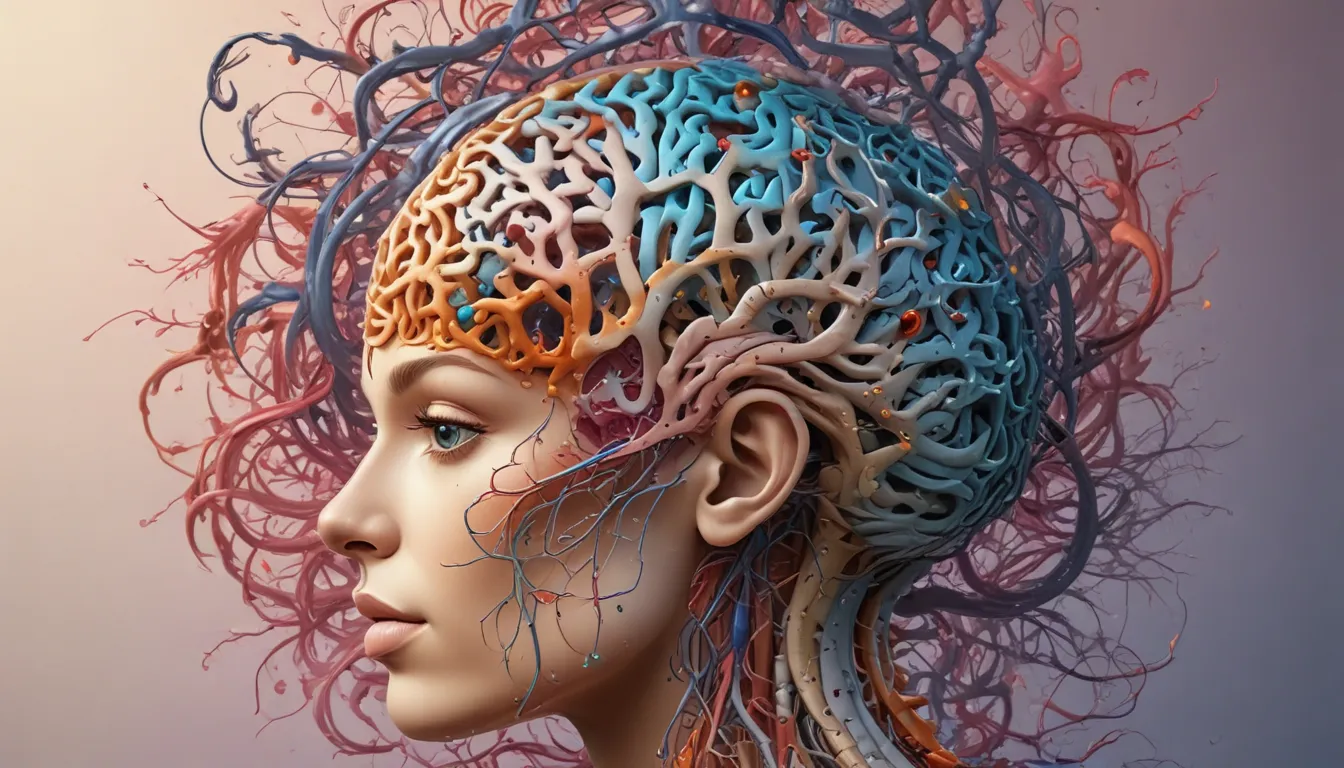A Note About Images: The images used in our articles are for illustration purposes only and may not exactly match the content. They are meant to engage readers, but the text should be relied upon for accurate information.
Neurodegenerative disorders encompass a group of diseases that involve the progressive degeneration and death of nerve cells, impacting cognitive and physical abilities. From Alzheimer’s disease to Parkinson’s disease and Huntington’s disease, these conditions present unique challenges that require a deeper understanding for effective treatments and interventions. In this comprehensive guide, we will delve into 17 astonishing facts about neurodegenerative disorders to shed light on their complexity and the crucial need for awareness, research, and support.
Key Insights:
- Neurodegenerative disorders like Alzheimer’s and Parkinson’s affect millions worldwide, impacting cognitive and motor functions. Research and awareness are crucial for better prevention and care. – Early detection and intervention are key in managing neurodegenerative disorders, offering hope for improved quality of life. Support for families and caregivers is vital.
Neurodegenerative Disorders Unveiled
Neurodegenerative disorders, such as Alzheimer’s disease and Parkinson’s disease, affect millions of people worldwide, spanning across different age groups but predominantly impacting the elderly. Alzheimer’s disease, the most common neurodegenerative disorder, primarily targets memory and cognitive functions, with over 5 million Americans currently living with the condition. On the other hand, Parkinson’s disease manifests through movement and motor function impairments, such as tremors, rigidity, and balance issues.
Huntington’s disease stands out as an inherited disorder caused by a genetic mutation, affecting cognitive abilities, behavior, and movement in affected individuals. The underlying causes of neurodegenerative disorders remain complex, with potential factors including genetics, environmental influences, and lifestyle choices contributing to their development.
Insights into Neurodegenerative Disorders
Neurodegenerative disorders have intricate underlying causes, and unfortunately, there is currently no known cure for most of these conditions. Treatment strategies predominantly focus on managing symptoms, improving quality of life, and slowing disease progression. Multiple sclerosis, another neurodegenerative disorder, affects the central nervous system, leading to communication issues between the brain and the rest of the body.
The economic impact of neurodegenerative disorders is significant, encompassing costs related to diagnosis, treatment, and long-term care. Diet and lifestyle choices play a crucial role in influencing the risk of developing these disorders, with adopting a healthy diet and engaging in regular physical activity potentially reducing the risk.
Understanding the Impact
Neurodegenerative disorders not only affect cognitive and physical abilities but also have profound implications for mental health. Individuals with these conditions may experience challenges such as depression, anxiety, and social isolation, necessitating comprehensive care to address both their physical and emotional well-being. Genetic mutations, such as those in the APP, PSEN1, and PSEN2 genes, can increase the risk of developing familial Alzheimer’s disease, highlighting the role of genetics in these disorders.
Environmental factors, including exposure to toxins and chemicals, may also contribute to the development of neurodegenerative disorders. These conditions can impact speech and language abilities, as seen in diseases like amyotrophic lateral sclerosis (ALS). Early detection and intervention are paramount in managing neurodegenerative disorders, enabling effective symptom management and improved quality of life for affected individuals.
Continuing Progress and Awareness
Research advancements in the field offer hope for the future of neurodegenerative disorders, with ongoing efforts to understand the mechanisms underlying these conditions. Increased awareness and education are essential in combatting these disorders, reducing stigma, promoting early detection, and supporting research and funding. By raising public awareness and enhancing scientific research, we can strive towards better prevention, treatment, and care for those impacted by neurodegenerative disorders.
Conclusion: Striving for Better Care
In conclusion, neurodegenerative disorders present intricate challenges that impact individuals, families, and society on a global scale. By expanding our knowledge of these conditions and supporting research endeavors, we can work towards enhancing prevention, treatment, and care for those affected by neurodegenerative disorders. From genetic factors to lifestyle influences, the journey to uncovering effective treatments continues, promising hope for a brighter future in managing these complex conditions.
FAQs: Exploring Further Insights
- What are the most common neurodegenerative disorders?
-
Alzheimer’s disease, Parkinson’s disease, Huntington’s disease, and ALS are among the most prevalent neurodegenerative disorders.
-
Are neurodegenerative disorders hereditary?
-
While some have a genetic component, other factors like environmental influences can contribute to their development.
-
Is there a cure for neurodegenerative disorders?
-
Currently, no definitive cure exists, but various treatments and interventions can help manage symptoms and improve quality of life.
-
Can lifestyle factors impact the risk of neurodegenerative disorders?
-
Adopting a healthy diet, staying physically active, and engaging in cognitive activities can potentially reduce the risk or delay onset.
-
What research efforts are underway for neurodegenerative disorders?
- Researchers worldwide are focused on understanding the mechanisms of these conditions and developing innovative treatment approaches for enhanced care.
By fostering awareness, supporting research, and enhancing our understanding of neurodegenerative disorders, we can pave the way towards a brighter future for those affected by these complex conditions. Together, let us embark on this journey of discovery and compassion to improve the quality of life for individuals living with neurodegenerative disorders.






